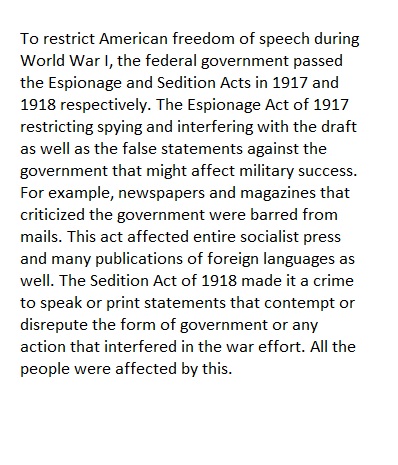


Q How did the federal government restrict American freedom of speech during WW1? Who was effected by these actions? How did the opposition respond to this infringement on Americans Civil Liberties? Who was Alice Stokes Paul? How did she change the Womens suffrage movement? How did concepts of freedom and democracy tied to the U.S.'s position in WW1 influence the suffrage movement? How did the War and Progressive principals effect American racial dynamics? Did Progressive Presidents succeed in improving the lives of racial minorities during this period? How did African American leaders respond to this racial environment? Explain Wilson's Fourteen Points. Why were they issued? What was their significance? Do you consider Prohibition (the 18th amendment) a Progressive accomplishment? Was it a success or a failure? Defend you position.
View Related Questions